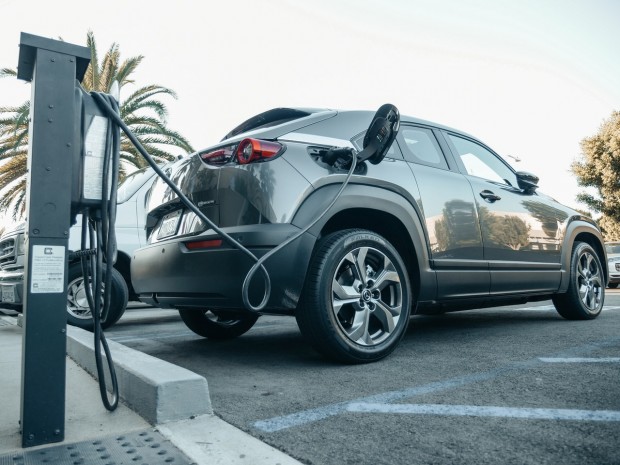Even though the market offers a dizzying choice of electric vehicles, consumers are still a bit sluggish to get off of fossil-fuel-guzzling cars for a variety of reasons. This comes as automakers pledge to up the investment in the EV market. For example, General Motors announced this week it will invest $7 billion into the production of EVs and battery cells in Michigan and aims to overtake the EV market in North America by 2025.
The consumer reluctance continues even as Tesla was just short of selling 1 million units in 2021. And Ford's introduction of its signature vehicle, the F-150, in electric version was matched with the electric Mustang Mach-E.
So, if automakers are doubling down on the EV market, why are consumers not jumping on the bandwagon with the same commitment and fervor?
Here are some top reasons, as noted by Mike Szudarek, automotive practice lead at PR firm Marx Layne & Company:
Cost
Battery technology continues to be prohibitively expensive, and batteries in EVs need to hold enough charge to make the cars usable for most drivers. This means the EVs have to be built with extremely expensive materials that are hard to obtain. Because they cost more to make, that expense is handed down to the consumer and is pricier than their gasoline counterparts. The basic economic theory begs the question: Why don't automakers simply ramp up production and adopt the economies of scale. It's a big of the chicken-and-egg quandary. For that to happen, consumer desire and need must exist. And that won't happen until prices come down.
Range Anxiety
It's a rationale concern - or fear - that an EV owner will be caught in the middle of nowhere with no charge and no charging station in sight. Fewer than 46,000 EV public charging stations exist in the U.S. For example, EV Driver A wants to take his new electric car from Detroit to Traverse City. It's a 255.5-mile trip. Most EVs have a range anywhere from 180 to 225 miles. So what is Example Driver A to do? Besides plotting out charging stations, it's not like pulling up to the pump and filling the vehicle with petro. A decent, full charge on a typical EV takes about eight hours. Times could vary depending on the size of the car's battery and the speed of the charging point. An average EV with a 60kWh battery charging at a 7kW charging point takes just under eight hours to get from empty to full.
Thankfully, the bipartisan Infrastructure Law has a major component to increase the number of charging stations in the near future. The law allocates $7.5 billion to "fast track" an additional 500,000 stations. So, at least plotting a trip to Detroit to Traverse City won't be as worrisome.
The market is beginning to address this. Lucid Motor's entry into the EV market with its Lucid Air won the 2022 MotorTrend Car of the Year, boasting a range of 520 miles and more than 1,100 available horsepower. The base price starts a little above $77,000. However, as technology improves, automaker experts expect the range and power will increase, alleviating range anxiety concerns.
Maintenance
By now, nearly everyone has seen the viral video of the Tesla owner who balked at paying a $22,000 repair bill to replace his battery. So instead, he wrapped it in dynamite and blew the car to smithereens.
While such a measure is the penultimate in extreme reactions, maintaining an EV car is undoubtedly causing frustrations due to the shortage of qualified mechanics. Recently, a survey by the UK's Institute of Motor Industry found that 97% of mechanics are not qualified to work on electric vehicles. The remaining 3%? Many of them work at dealerships.
"Ninety percent of our industry has done nothing - absolutely nothing - to prepare," auto mechanic Craig Van Batenburg told the Chicago Tribune, noting most of the resistance to electric car training resides in the Midwest. "They just turn the hybrids and EVs away and say 'We don't work on those cars, go back to Ford or Toyota.' The fear factor is huge."
Auto mechanics and techs have a cutoff date of 2040 to become fully fluent in servicing EVs. Yet, difficulty in getting maintenance today is holding off prospective EV buyers.
Design
While design is more of a subjective matter, many consumers have been turned off by some models on the market. The challenge? EVs carry a different architecture path than gas-powered vehicles. Before, cars were conceived around a central element: the powertrain. The EV allows for more freedom for the design engineers. It's a win-lose situation, according to automotive business developer Steven Dom. Designers now have many designs put forth by new and established car companies. But, on the other hand, this makes the design engineer's job more demanding than ever.
This presents a challenge for design engineers who often work under stringent time-to-market requirements. While they may have many choices to be innovative, the design engineer needs to select the best architecture. However, it needs to be done very quickly.
Design engineers are beginning to figure out that manufacturers need to place the needs and desires of human beings at the center of their designs and not the technology. So as the focus shifts and remains on consumers' needs and expectations, the desirability to buy and own an EV could increase.
See Now: OnePlus 6: How Different Will It Be From OnePlus 5?






















